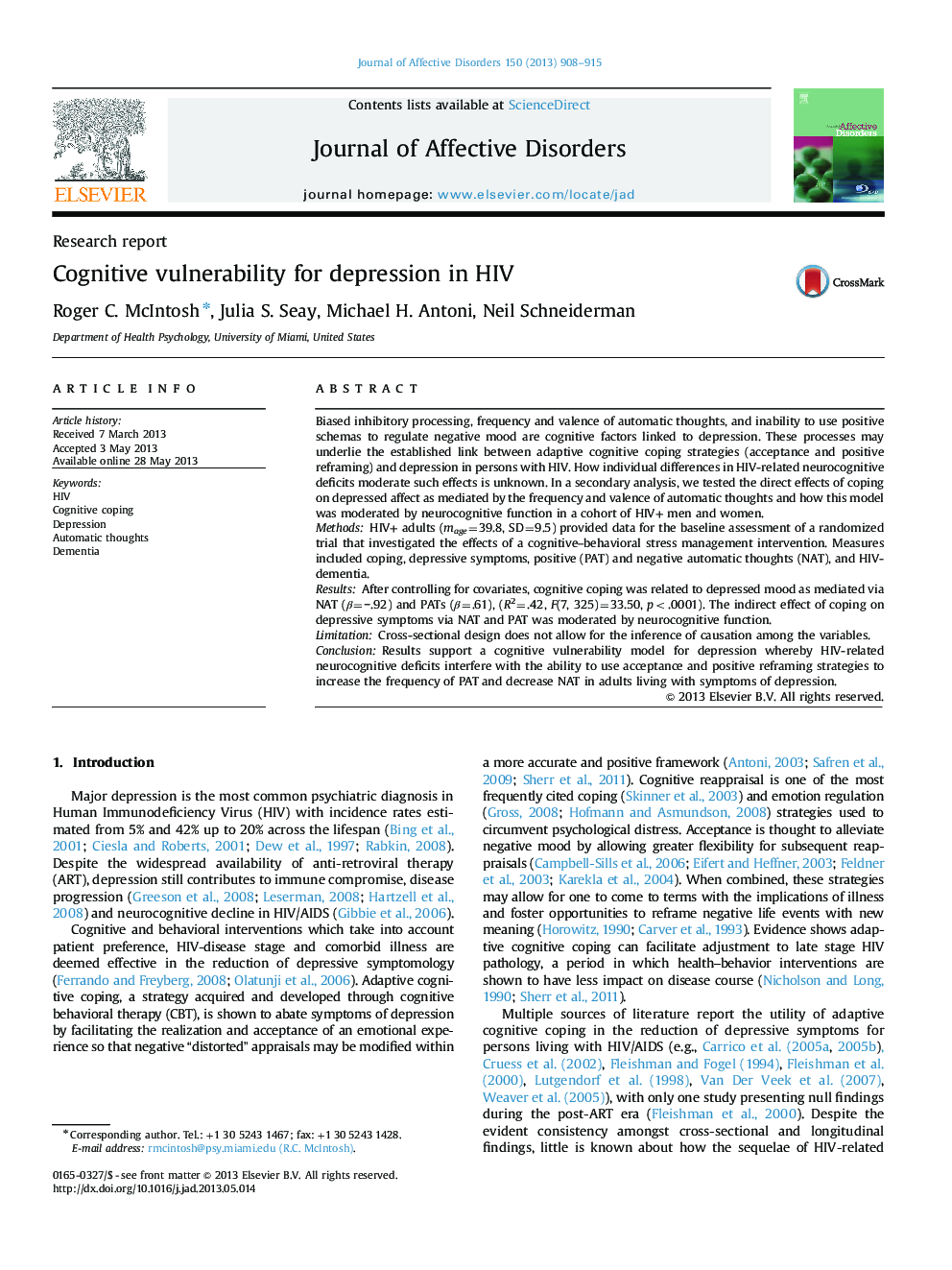| کد مقاله | کد نشریه | سال انتشار | مقاله انگلیسی | نسخه تمام متن |
|---|---|---|---|---|
| 6233630 | 1608172 | 2013 | 8 صفحه PDF | دانلود رایگان |

Biased inhibitory processing, frequency and valence of automatic thoughts, and inability to use positive schemas to regulate negative mood are cognitive factors linked to depression. These processes may underlie the established link between adaptive cognitive coping strategies (acceptance and positive reframing) and depression in persons with HIV. How individual differences in HIV-related neurocognitive deficits moderate such effects is unknown. In a secondary analysis, we tested the direct effects of coping on depressed affect as mediated by the frequency and valence of automatic thoughts and how this model was moderated by neurocognitive function in a cohort of HIV+ men and women.MethodsHIV+ adults (mage=39.8, SD=9.5) provided data for the baseline assessment of a randomized trial that investigated the effects of a cognitive-behavioral stress management intervention. Measures included coping, depressive symptoms, positive (PAT) and negative automatic thoughts (NAT), and HIV-dementia.ResultsAfter controlling for covariates, cognitive coping was related to depressed mood as mediated via NAT (β=â.92) and PATs (β=.61), (R2=.42, F(7, 325)=33.50, p<.0001). The indirect effect of coping on depressive symptoms via NAT and PAT was moderated by neurocognitive function.LimitationCross-sectional design does not allow for the inference of causation among the variables.ConclusionResults support a cognitive vulnerability model for depression whereby HIV-related neurocognitive deficits interfere with the ability to use acceptance and positive reframing strategies to increase the frequency of PAT and decrease NAT in adults living with symptoms of depression.
Journal: Journal of Affective Disorders - Volume 150, Issue 3, 25 September 2013, Pages 908-915